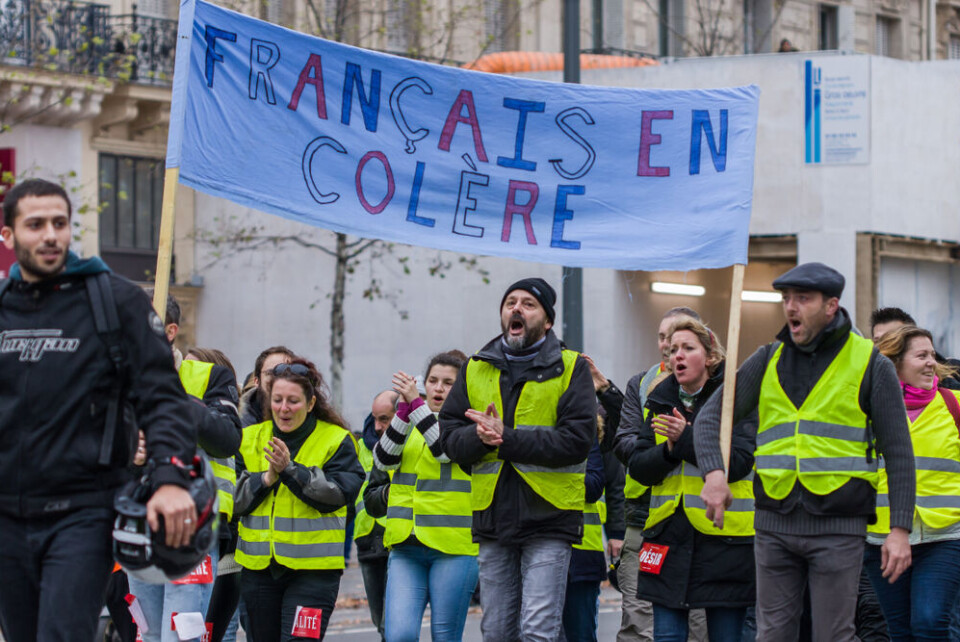-
Many parcel collection points in France are overwhelmed as Christmas approaches
Heavy customer traffic leaves some struggling to cope
-
Warnings issued over connecting to public WiFi networks in France
Lack of encryption and risk of connecting to ‘fake networks’ leave users at risk of hacking attempts
-
Provence’s santon makers seek geographical protection for historic craft
The small, hand-painted clay figurines are at the heart of traditional French Christmas nativity scenes
Taxis, lorry drivers: will other workers join French farmer protests?
Several unions have voiced their support for the movement, raising fears that it could spread to other sectors

The protest by French farmers has escalated rapidly this week and several unions from other sectors have voiced their support.
As taxi drivers strike in Toulouse and fishermen join the protests in Rennes, there are growing concerns that the farmers’ movement could spread to other sectors.
Farmers are protesting against what they see as a stifling accumulation of French and European regulations in addition to the reintroduction of a tax on agricultural diesel.
They have been using parked tractors and bales of straw to create roadblocks on motorways around the country since January 20. In other places they are deliberately slowing traffic with rolling barricades.
The FNSEA and Jeunes Agriculteurs farmers unions have called for a “blockade of Paris”, and are expected to converge on the capital on January 27.
Read more: Where are French farmers' roadblocks now and what about the weekend?
Could other unions join the farmers’ protest?
The national CGT union called on its members to “spread the movement and work towards a consensus that would let us earn a good living from our work”, in a statement on January 25.
In several areas the farmers have already been joined by workers from other sectors and other unions - as yet uninvolved - are sympathetic to their cause.
Fishermen:
Fishermen joined farmers in Rennes to protest in front of the prefecture on Thursday (January 25). However, their participation is largely coincidental.
On January 22, fishing in 75% of French waters on the Atlantic-Channel coast was banned in a bid to slow the accidental capture and death of dolphins and porpoises.
The ban affects more than 500 French fishing boats and also applies to foreign vessels.
While the Minister for Ecological Transition, Christophe Béchu says that fishermen will receive aid to compensate for their losses, amounting for “between 80 and 85% of turnover”, many say this does not go far enough.
Read more: Fishing is banned off west coast of France to protect dolphins
Taxi drivers:
Taxi drivers are also protesting, but so far not alongside farmers.
On Wednesday, 400 taxis disrupted traffic in Toulouse and gathered in front of the CPAM (national health insurance) offices.
They are protesting the new ‘healthcare car-sharing’ rule included in the 2024 social security budget, which obliges them to carry several patients at a time on trips to the hospital.
In France, transport to the hospital can be reimbursed by the social security system, which means that taxis are an important link in the healthcare chain for many people.
The plans to increase shared rides to the hospital from 15% of trips in 2022 to 55% in 2025, would save the government €92m, at the expense of taxi drivers.
Taxi drivers in Toulouse have announced more protests for January 29, with plans to gather at Toulouse Airport from 06:30, along with several “surprise actions”.
Read more: Taxis on ‘drive slow’ protest in France over hospital transport change
Hotels and restaurants:
The hotel and restaurant workers’ union, Union des métiers et des industries de l’hôtellerie-restauration (UMIH) has voiced its support for farmers.
“Like them, restaurants are subject to the rising prices of energy and raw materials and are seeing their profit margins disappear,” said the UMIH in a statement.
So far the UMIH has not joined the protest or declared an intention to strike.
Lorry drivers:
Lorry drivers are also watching the farmers’ protest. In Lyon many lorries joined the tractors in forming roadblocks on the A7, with managers telling Le Figaro they are “very concerned”.
While the lorry drivers association, Fédération nationale des transports routiers, says there is “no national movement”, the CFDT route drivers trade union told Le Figaro it could envision joining the farmers “in the coming days or weeks”.
However, their protest is due to the fact that Mr Attal has yet to name a Minister of Transport in his government.
Meat workers:
The Confédération française de la boucherie, charcuterie, traiteur (CFBCT), meat workers’ union says it supports the farmers’ protest
“It is urgent that the farmers’ demands are met by immediate and concrete measures,” it announced on January 25.
The union has not announced an intention to strike.
‘A danger of it spreading’
Prime Minister Gabriel Attal met with the farmers’ unions on January 22.
However, the meeting was apparently fruitless, with FNSEA farmers’ union president Arnaud Rousseau announcing “no end to the present actions” without “concrete solutions”.
Since then the government neither offered concessions nor acted to prevent the protesters from blocking roads and motorways.
“The wait is a clear factor in contributing to the disorder, which could result in all sorts of actions,” warned the police intelligence agency, la Direction nationale du renseignement territorial (DNRT) on January 24.
“The longer the wait goes on, the more we are in danger of it spreading,” announced the DNRT statement.
Prime Minister Gabriel Attal announced that he would meet with protesters in Occitanie on the afternoon of January 26.
Read more:
Staff go on 'unlimited strike' at Mont-Saint-Michel in Normandy
Flights cancelled as strike set to hit several French airports
























